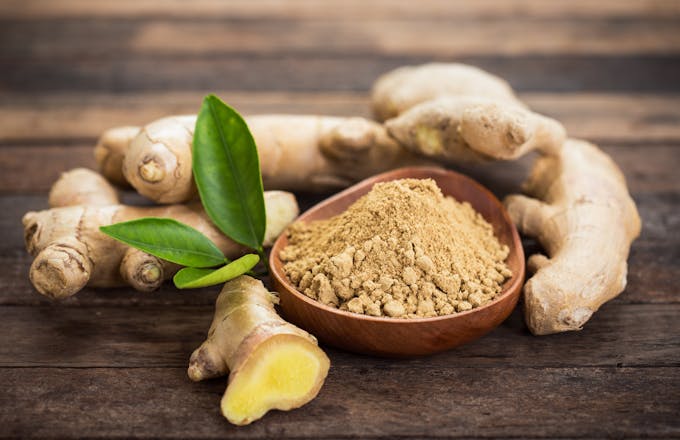Does Ginger Break a Fast?

Healthy Keto Acceptable Foods List
Explore a comprehensive list of foods and beverages that align with Healthy Keto®
Identify which foods support fat-burning and metabolic health
Discover nutritious options for fats, proteins, and vegetables to support your health goals
Learn about common foods that aren’t Healthy Keto-approved

Healthy Keto Acceptable Foods List
Explore a comprehensive list of foods and beverages that align with Healthy Keto®
Identify which foods support fat-burning and metabolic health
Discover nutritious options for fats, proteins, and vegetables to support your health goals
Learn about common foods that aren’t Healthy Keto-approved

Healthy Keto Acceptable Foods List
Explore a comprehensive list of foods and beverages that align with Healthy Keto®
Identify which foods support fat-burning and metabolic health
Discover nutritious options for fats, proteins, and vegetables to support your health goals
Learn about common foods that aren’t Healthy Keto-approved

Healthy Keto Acceptable Foods List
Explore a comprehensive list of foods and beverages that align with Healthy Keto®
Identify which foods support fat-burning and metabolic health
Discover nutritious options for fats, proteins, and vegetables to support your health goals
Learn about common foods that aren’t Healthy Keto-approved

Healthy Keto Acceptable Foods List
Explore a comprehensive list of foods and beverages that align with Healthy Keto®
Identify which foods support fat-burning and metabolic health
Discover nutritious options for fats, proteins, and vegetables to support your health goals
Learn about common foods that aren’t Healthy Keto-approved

Healthy Keto Acceptable Foods List
Explore a comprehensive list of foods and beverages that align with Healthy Keto®
Identify which foods support fat-burning and metabolic health
Discover nutritious options for fats, proteins, and vegetables to support your health goals
Learn about common foods that aren’t Healthy Keto-approved

Healthy Keto Acceptable Foods List
Explore a comprehensive list of foods and beverages that align with Healthy Keto®
Identify which foods support fat-burning and metabolic health
Discover nutritious options for fats, proteins, and vegetables to support your health goals
Learn about common foods that aren’t Healthy Keto-approved

Healthy Keto Acceptable Foods List
Explore a comprehensive list of foods and beverages that align with Healthy Keto®
Identify which foods support fat-burning and metabolic health
Discover nutritious options for fats, proteins, and vegetables to support your health goals
Learn about common foods that aren’t Healthy Keto-approved

Healthy Keto Acceptable Foods List
Explore a comprehensive list of foods and beverages that align with Healthy Keto®
Identify which foods support fat-burning and metabolic health
Discover nutritious options for fats, proteins, and vegetables to support your health goals
Learn about common foods that aren’t Healthy Keto-approved

Healthy Keto Acceptable Foods List
Explore a comprehensive list of foods and beverages that align with Healthy Keto®
Identify which foods support fat-burning and metabolic health
Discover nutritious options for fats, proteins, and vegetables to support your health goals
Learn about common foods that aren’t Healthy Keto-approved

Healthy Keto Acceptable Foods List
Explore a comprehensive list of foods and beverages that align with Healthy Keto®
Identify which foods support fat-burning and metabolic health
Discover nutritious options for fats, proteins, and vegetables to support your health goals
Learn about common foods that aren’t Healthy Keto-approved

Healthy Keto Acceptable Foods List
Explore a comprehensive list of foods and beverages that align with Healthy Keto®
Identify which foods support fat-burning and metabolic health
Discover nutritious options for fats, proteins, and vegetables to support your health goals
Learn about common foods that aren’t Healthy Keto-approved

Healthy Keto Acceptable Foods List
Explore a comprehensive list of foods and beverages that align with Healthy Keto®
Identify which foods support fat-burning and metabolic health
Discover nutritious options for fats, proteins, and vegetables to support your health goals
Learn about common foods that aren’t Healthy Keto-approved

Healthy Keto Acceptable Foods List
Explore a comprehensive list of foods and beverages that align with Healthy Keto®
Identify which foods support fat-burning and metabolic health
Discover nutritious options for fats, proteins, and vegetables to support your health goals
Learn about common foods that aren’t Healthy Keto-approved

How to Read Your Body
Learn to recognize common symptoms and uncover their underlying health issues
Understand the signs of nutrient deficiencies to manage your health
Explore the four metabolic body types and the core factors that influence them
Interpret your body's signals from head to toe to identify potential health concerns

How to Read Your Body
Learn to recognize common symptoms and uncover their underlying health issues
Understand the signs of nutrient deficiencies to manage your health
Explore the four metabolic body types and the core factors that influence them
Interpret your body's signals from head to toe to identify potential health concerns

How to Read Your Body
Learn to recognize common symptoms and uncover their underlying health issues
Understand the signs of nutrient deficiencies to manage your health
Explore the four metabolic body types and the core factors that influence them
Interpret your body's signals from head to toe to identify potential health concerns

How to Read Your Body
Learn to recognize common symptoms and uncover their underlying health issues
Understand the signs of nutrient deficiencies to manage your health
Explore the four metabolic body types and the core factors that influence them
Interpret your body's signals from head to toe to identify potential health concerns

How to Read Your Body
Learn to recognize common symptoms and uncover their underlying health issues
Understand the signs of nutrient deficiencies to manage your health
Explore the four metabolic body types and the core factors that influence them
Interpret your body's signals from head to toe to identify potential health concerns

How to Read Your Body
Learn to recognize common symptoms and uncover their underlying health issues
Understand the signs of nutrient deficiencies to manage your health
Explore the four metabolic body types and the core factors that influence them
Interpret your body's signals from head to toe to identify potential health concerns

How to Read Your Body
Learn to recognize common symptoms and uncover their underlying health issues
Understand the signs of nutrient deficiencies to manage your health
Explore the four metabolic body types and the core factors that influence them
Interpret your body's signals from head to toe to identify potential health concerns

How to Read Your Body
Learn to recognize common symptoms and uncover their underlying health issues
Understand the signs of nutrient deficiencies to manage your health
Explore the four metabolic body types and the core factors that influence them
Interpret your body's signals from head to toe to identify potential health concerns

How to Read Your Body
Learn to recognize common symptoms and uncover their underlying health issues
Understand the signs of nutrient deficiencies to manage your health
Explore the four metabolic body types and the core factors that influence them
Interpret your body's signals from head to toe to identify potential health concerns

How to Read Your Body
Learn to recognize common symptoms and uncover their underlying health issues
Understand the signs of nutrient deficiencies to manage your health
Explore the four metabolic body types and the core factors that influence them
Interpret your body's signals from head to toe to identify potential health concerns

How to Read Your Body
Learn to recognize common symptoms and uncover their underlying health issues
Understand the signs of nutrient deficiencies to manage your health
Explore the four metabolic body types and the core factors that influence them
Interpret your body's signals from head to toe to identify potential health concerns

How to Read Your Body
Learn to recognize common symptoms and uncover their underlying health issues
Understand the signs of nutrient deficiencies to manage your health
Explore the four metabolic body types and the core factors that influence them
Interpret your body's signals from head to toe to identify potential health concerns

How to Read Your Body
Learn to recognize common symptoms and uncover their underlying health issues
Understand the signs of nutrient deficiencies to manage your health
Explore the four metabolic body types and the core factors that influence them
Interpret your body's signals from head to toe to identify potential health concerns

How to Read Your Body
Learn to recognize common symptoms and uncover their underlying health issues
Understand the signs of nutrient deficiencies to manage your health
Explore the four metabolic body types and the core factors that influence them
Interpret your body's signals from head to toe to identify potential health concerns
Ginger (Zingiber officinale) is a flowering plant often used as a spice for food. It's known for its many health-promoting benefits and ability to reduce nausea.
Ginger has powerful anti-inflammatory and antihyperglycemic (high blood sugar normalizing) properties, along with many other health benefits, including its ability to improve insulin sensitivity.
So, does ginger break a fast? No, ginger will not interrupt your fast. In fact, it can even enhance your fasting benefits.

What is intermittent fasting?
Intermittent fasting is an eating pattern that limits all food and calorie-rich beverages to a short eating window each day. Outside of your eating window, you can only have water and other drinks with little to no calories.
Fasting is the most important thing you can do for your health. It has many incredible health benefits, including better hormone balance, increased insulin response, and faster weight loss.
An example of an intermittent fasting schedule is to skip breakfast, have your first meal at noon, and your last meal at 6:00 pm. This is an 18:6 fast—18 hours of fasting with a 6-hour eating window.
On a Health Keto™ and intermittent fasting plan, when you eat is just as important as what you eat.
What stops fasting?
Two goals of fasting and the keto diet are to lower insulin levels and produce ketones. Eating carbohydrate or calorie-rich foods, drinks, or snacks between meals spikes insulin and breaks your fast. This includes most healthy snacks. Learn more about what breaks a fast and what does not.
Foods that can increase insulin stop your fast:
Carbohydrates (potatoes, pasta, sugar, sweetened drinks, bread)
Proteins (meat, legumes, fish, eggs, milk, yogurt, protein powder)
Fats (excluding moderate amounts of MCT oil)
Certain artificial sweeteners, including maltitol

What can you have when fasting?
During intermittent fasting, you can have drinks with little to no carbs or calories. You can also have a small amount of foods that are very low in carbs, protein, and fat, like celery. Medium-chain triglycerides (MCTs) are also safe while fasting because they have little effect on blood sugar levels.
Here are the foods, drinks, and supplements you can have while fasting:
Lemons and lemon juice
High-fiber, low-carb foods (celery and lettuce salads)
Whole cream
Butter
Coffee
Ginger tea and other herbal teas
Stevia
Low-carb electrolyte powder
Vitamins and mineral supplements
How to use ginger during intermittent fasting
You can have ginger during your fasting window as long as you don't combine it with carbs, fat, or protein.
Try shaving some ginger onto a healthy green-leaf salad, adding it to your drinking water, or mixing it into carbonated lemon water with a little stevia or monk fruit sweetener. Ginger tea is an excellent way to curb cravings, soothe your stomach, and relax your nerves.
Ginger is not only safe while fasting, but it also helps lower insulin, which can decrease your hunger. For more ideas on how to use ginger while fasting, check out the recipe at the end of this article.

Ginger health benefits
The health-promoting benefits of ginger come from its rich phytochemistry. Ginger has 114 phytonutrients that have powerful anti-inflammatory, anticancer, antinausea, antidiabetic, antioxidant, and antihypertensive properties.
The active ingredients in ginger (zingerone and shogaols) are responsible for most of its beneficial properties. Ginger root is also rich in vitamins and minerals, including vitamin C, magnesium, and potassium.
The many benefits of ginger—combined with its low-carb and high-fiber content—make it a great way to get the most out of intermittent fasting.
Here are seven powerful benefits of ginger.
Reduces inflammation
Ginger is known for its strong anti-inflammatory and antioxidant properties. It inhibits the effects of proinflammatory substances and can modulate your body's inflammatory response. This is especially useful for those with arthritis and other inflammatory diseases.
Soothes stomach and improves digestion
Ginger can reduce indigestion symptoms, including gas, bloating, acid reflux, and heartburn. It also alleviates gastrointestinal cramps and supports normal digestion.
Ginger has a unique carminative effect, meaning it lowers pressure on the lower esophageal sphincter (a muscular ring that opens and closes to allow food into the stomach).
It also stimulates the liver, promoting the release of bile directly from the liver instead of from the gallbladder. This allows the gallbladder to concentrate its stored bile. When bile is concentrated, it improves the digestive system and reduces adverse GI symptoms, such as gas and bloating.
Supports insulin sensitivity and healthy blood sugars
Chronic consumption of high-sugar and high-carb foods can lead to insulin resistance. Every time you consume carbohydrates, your insulin level spikes. Over time, your insulin receptors become resistant to insulin molecules, which causes your blood sugar to rise to dangerous levels.
Ginger has an antihyperglycemic (blood sugar lowering) effect linked to its ability to improve carbohydrate metabolism and promote insulin sensitivity. Taking two grams of ginger per day can significantly lower your blood sugar level during your fasting period.
Promotes weight loss
Ginger's health-promoting compounds—zingerone and shogaols—can promote weight loss. These compounds work with the body's fat-burning and fat-storing processes to help you lose weight by:
Decreasing appetite
Reducing insulin levels
Lowering blood sugar
Decreasing body mass index
Enhancing heat production from calorie burning
Boosting fat loss
Supports immune function
Ginger's antioxidant properties can support your immune system. Studies have shown that it has immune supporting functions, including:
Protecting the respiratory system
Defending against chronic disease
Supporting acute illness recovery (including the flu and common cold)
Soothes menstrual cramps
Menstrual cramps (dysmenorrhea) are linked to inflammation. Due to ginger's potent anti-inflammatory and pain-relieving properties, it can help alleviate menstrual cramps and bloating. 200 mg of ginger taken four times daily can be as effective as Novafen (acetaminophen, ibuprofen, and caffeine) for menstrual pain.
Prevents cancer
Studies have demonstrated that ginger's active ingredients (gingerols, shogaols, and paradol) may effectively help reduce the risk of certain types of cancer.

Fresh vs. powdered ginger
Fresh ginger root tastes sweeter and more pungent and varies in overall flavor compared to powdered or ground varieties. Fresh ginger also has more essential oils and gingerol than ground ginger. Ground ginger contains more shogaols, which gives it a spicy taste.
Overall, fresh ginger has a higher nutritional profile and may offer more health benefits compared to when it’s ground or powdered.
How to make ginger-lemon water
Drinking ginger-lemon water or lemon-ginger tea is a great way to stabilize your insulin level. Normalizing your insulin response is one of the best things you can do to reduce hunger and cravings while doing intermittent fasting.
Lemons are excellent for replenishing vitamin C, reducing liver fat, and supplying citrates to reduce your risk of oxalate kidney stones.
Lemon and ginger are the perfect pair while fasting. You can add them to water to make healthy drinks that combat dehydration and hunger during fasting. You can make your own tasty lemon-ginger drink by following this simple recipe.
Lemon-ginger water recipe

Total time: 3 to 5 minutes
Serves: 1
Per serving: 4 calories, 0 g protein, 2 g carbohydrates, 0 g fat
Ingredients
¼ cup ginger, grated
1 lemon, juiced
12 oz water
Stevia, to taste
Instructions
Add grated ginger, lemon juice, and water to a mixing container.
Strain the fiber out using a cheesecloth.
Add a small amount of stevia (if you like it sweetened).
Pour into a cup of ice or heat in a mug and enjoy!
Tip: Try substituting still water for unsweetened carbonated water to make sparkling ginger lemonade!
Note: Drink this ginger-lemon water on an empty stomach while doing intermittent fasting to reduce cravings and enhance benefits.

Key takeaways
Ginger is a root from a flowering plant, used as a spice and a health-boosting medicinal herb. It's easy to find dried and ground or as a whole root.
Ginger water is safe to have while doing intermittent fasting—it has few calories, helps reduce hunger, and provides many health benefits.
Try adding more ginger to your keto diet and intermittent fasting plan—it won't break your fast!
FAQ
1. How many calories and carbohydrates are in ginger?
Ginger has just nine calories and two carbohydrates, which will not break a fast.
2. Does ginger break intermittent fasting?
No, ginger will not break your fast. It's safe to have while doing intermittent fasting and a keto diet.
3. Should I have ginger while fasting?
Yes. Ginger has many healthy benefits and will not break your fast.
4. What's the best form of ginger to have while fasting?
Fresh ginger is best for fasting, particularly if you want to lose weight. However, any form is beneficial and will not break your fast.
5. Can spices break a fast?
No, spices will not break your fast.
Previous blog
Before You Get Your Ovaries Removed Watch ThisTags

Popular
08/21/2024
55K views
02/23/2025
46.3K views
11/18/2024
277.5K views
03/18/2024
11/21/2022




